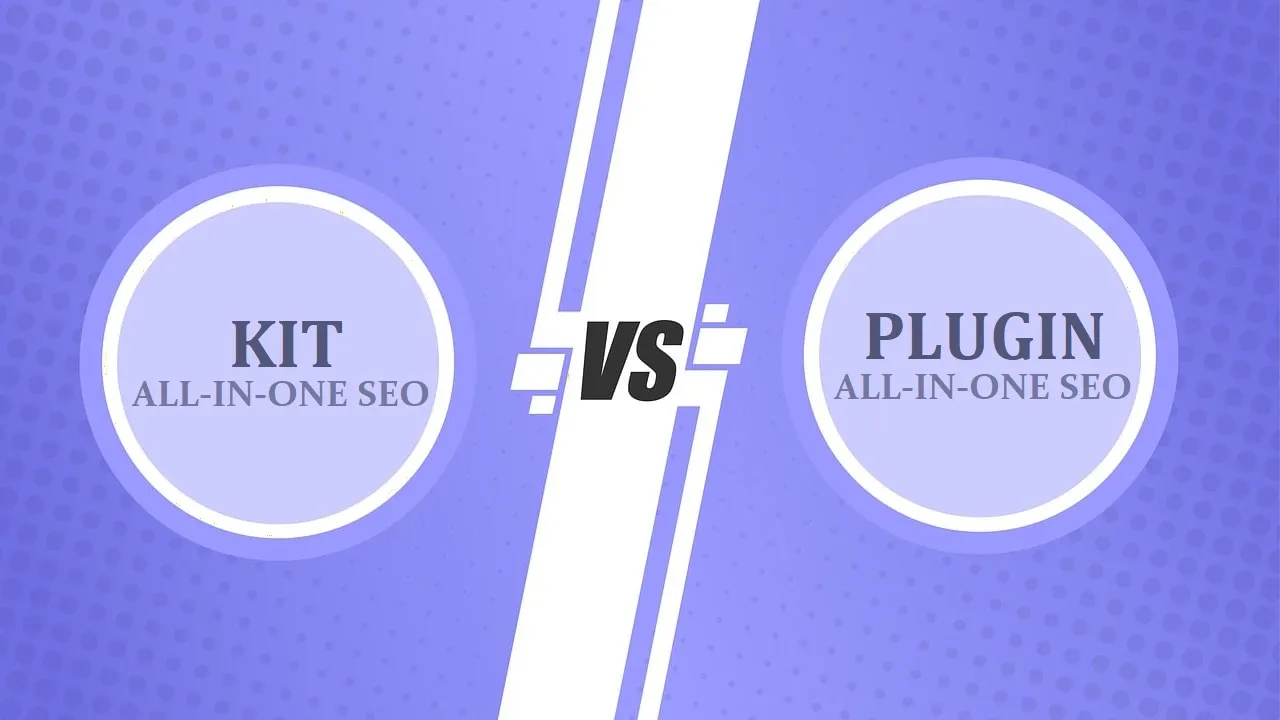
All-in-One SEO Kit vs. All-in-One SEO Plugin: A Comprehensive Comparison
In today's digital landscape, search engine optimization (SEO) is crucial for any website aiming to achieve visibility and success. To assist with this, various tools and plugins have been developed. Two popular options are the All-in-One SEO Kit and the All-in-One SEO Plugin. While they may sound similar, they offer different features and benefits. This article will compare these two solutions, helping you decide which one best fits your needs.
What is an All-in-One SEO Kit?
An All-in-One SEO Kit is a comprehensive suite of online tools designed to cover various aspects of SEO. These kits typically include features for keyword analysis, backlink monitoring, site audits, content optimization, and more. They are generally hosted on a website and accessible from any device with internet access.
Key Features of All-in-One SEO Kit:
- Keyword Analysis: Helps identify the best keywords for your content.
- Site Audits: Provides detailed reports on site performance, including SEO errors and recommendations.
- Backlink Monitoring: Tracks backlinks and analyzes their impact on your SEO.
- Content Optimization: Offers tools like meta tag generators and readability checkers.
- Performance Metrics: Displays site speed, mobile-friendliness, and other crucial metrics.
- Free SEO Tools: Offers a wide range of free tools, addressing different aspects of SEO and Web.
What is an All-in-One SEO Plugin?
An All-in-One SEO Plugin is a tool that integrates directly with your content management system (CMS), such as WordPress. These plugins are designed to optimize your website for search engines from within your CMS dashboard, making it easy to manage SEO without leaving your site.
Key Features of All-in-One SEO Plugin:
- Meta Tag Management: Easily add and edit meta titles, descriptions, and keywords.
- XML Sitemap Creation: Automatically generates sitemaps to help search engines index your site.
- Social Media Integration: Optimizes your content for sharing on social media platforms.
- On-Page SEO Analysis: Provides real-time analysis of your content, offering suggestions for improvement.
- Schema Markup: Helps search engines understand your content better through structured data.
Comparing All-in-One SEO Kit and All-in-One SEO Plugin
1. Ease of Use
- SEO Kit: Generally web-based, requiring users to switch between the tool and their CMS. It may have a steeper learning curve but offers more comprehensive features.
- SEO Plugin: Directly integrated into the CMS, providing a more seamless experience. It's user-friendly and convenient for those already familiar with the CMS.
2. Feature Set
- SEO Kit: Offers a wider range of tools, covering various aspects of SEO, including off-page SEO, keyword research, and competitive analysis.
- SEO Plugin: Focuses more on on-page SEO, offering fewer tools but integrating deeply into your website’s backend.
3. Customization and Control
- SEO Kit: Offers more detailed and customizable reports, but requires manual input and adjustments.
- SEO Plugin: Often includes automated features, like meta tag generation, but offers less granular control compared to an SEO Kit.
4. Pricing
- SEO Kit: Can range from free to premium options, with more advanced features typically behind a paywall.
- SEO Plugin: Usually offers free and premium versions, with the free version providing basic SEO features.
Which One Should You Choose?
The choice between an All-in-One SEO Kit and an All-in-One SEO Plugin depends largely on your specific needs and comfort level with SEO.
Choose All-in-One SEO Kit if:
- You need a comprehensive set of SEO tools.
- You are comfortable using multiple platforms.
- You want detailed reports and control over every aspect of SEO.
Choose All-in-One SEO Plugin if:
- You prefer a streamlined, integrated solution.
- You focus primarily on on-page SEO.
- You want an easy-to-use tool that requires minimal setup.
Conclusion
Both the All-in-One SEO Kit and All-in-One SEO Plugin offer valuable features for optimizing your website for search engines. While the SEO Kit provides a broader range of tools, the SEO Plugin offers convenience and ease of use, especially for those already using a CMS. By understanding the differences and benefits of each, you can make an informed decision that best supports your website’s SEO strategy.
References:
- SEO Best Practices, Moz Blog
- The Complete Guide to On-Page SEO, Neil Patel
- How to Choose the Right SEO Tools for Your Business, SEMrush Blog
By carefully considering your needs and the features offered by each option, you can select the best tool to enhance your website's SEO performance.